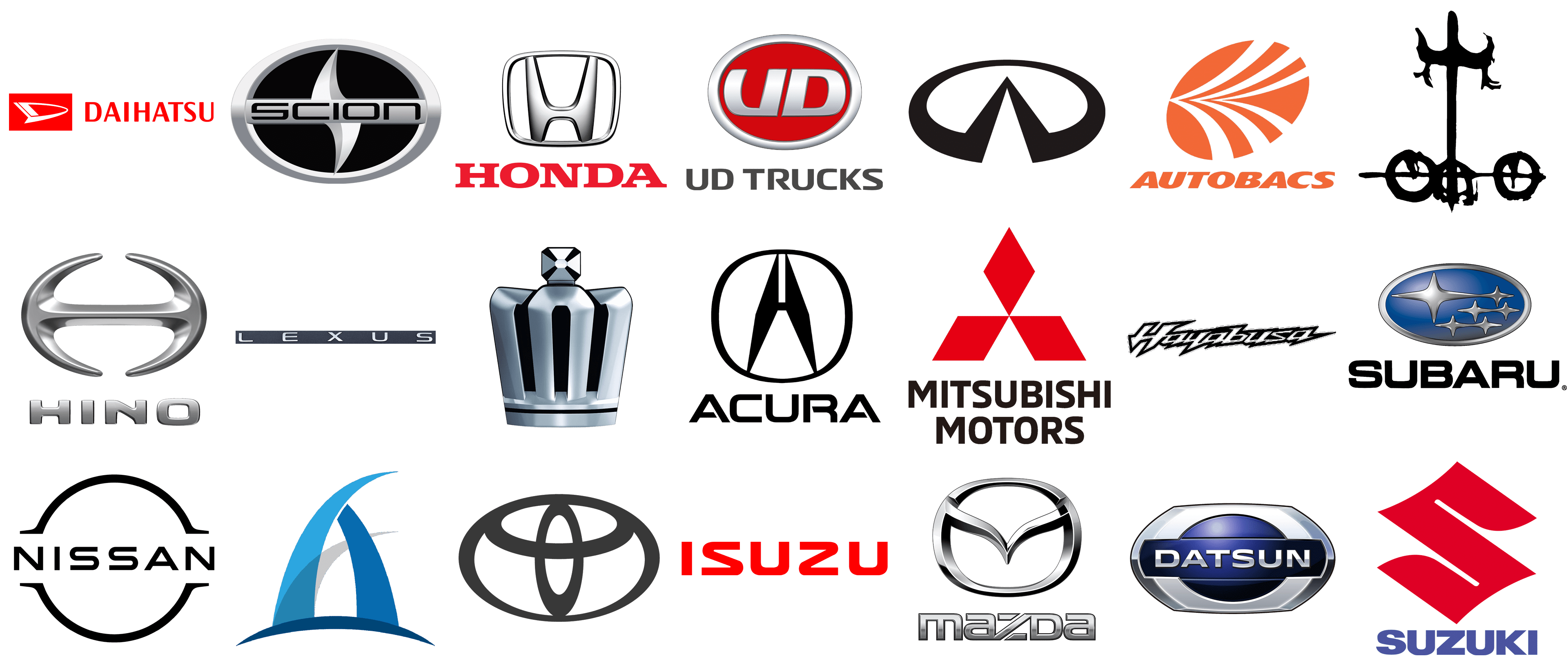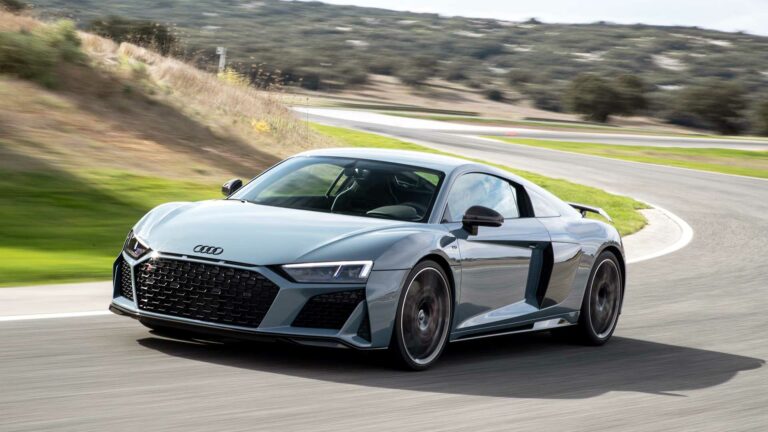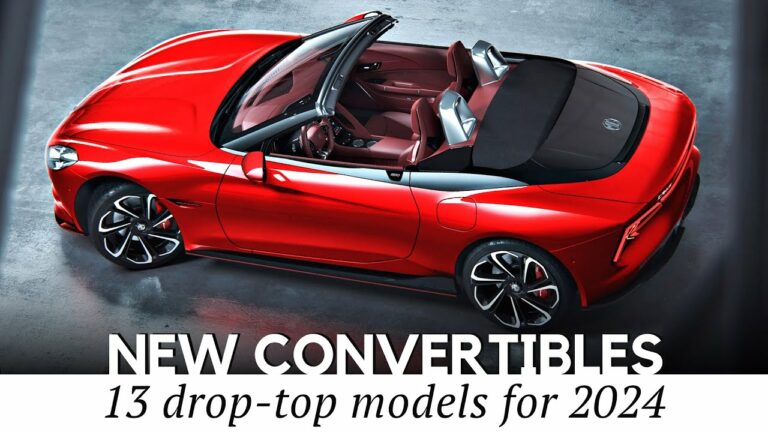American Car Brands List: A Comprehensive Guide to the Pillars of Automotive Innovation
American Car Brands List: A Comprehensive Guide to the Pillars of Automotive Innovation cars.truckstrend.com
The American automotive industry has a storied history, marked by innovation, ambition, and a profound impact on global culture and economy. From the pioneering days of Henry Ford’s assembly line to the cutting-edge electric vehicles (EVs) of today, American car brands have consistently shaped the way the world moves. This guide delves into the diverse landscape of American car brands, exploring their legacy, current offerings, and future directions. Understanding this list is not just about identifying names; it’s about appreciating a legacy of power, utility, luxury, and a relentless drive towards technological advancement.
The Big Three: Pillars of American Automotive Power
American Car Brands List: A Comprehensive Guide to the Pillars of Automotive Innovation
For decades, the American automotive landscape has been dominated by what are famously known as the "Big Three": General Motors, Ford Motor Company, and what is now Stellantis North America (formerly FCA US). These giants have defined the industry, producing millions of vehicles and establishing iconic brands that resonate globally.
1. General Motors (GM)
Overview: Founded in 1908, General Motors is one of the world’s largest automotive manufacturers. GM has historically offered a full spectrum of vehicles, from entry-level sedans to heavy-duty trucks and luxury cars. Its strategy today is heavily focused on an all-electric future, alongside maintaining its dominance in the truck and SUV segments.
Key Brands Under GM:
- Chevrolet: Often considered GM’s flagship brand, Chevrolet (Chevy) offers a wide range of vehicles, including popular trucks (Silverado, Colorado), SUVs (Tahoe, Traverse, Equinox), performance cars (Corvette, Camaro), and a growing line of EVs (Bolt EV/EUV, Blazer EV, Equinox EV, Silverado EV). Known for reliability and value.
- Cadillac: GM’s luxury division, Cadillac, has a long history of opulent sedans and powerful SUVs. Today, Cadillac is rapidly transitioning to an all-electric lineup, with models like the Lyriq leading the charge, alongside popular gasoline SUVs like the Escalade and XT series.
- GMC: Focusing on trucks and SUVs, GMC (General Motors Truck Company) positions itself as a premium utility brand. Its vehicles often share platforms with Chevrolet but offer more upscale features, distinct styling, and higher trim levels, including the Denali sub-brand. Key models include the Sierra pickup and Yukon SUV, and the electric Hummer EV.
- Buick: Buick occupies a space between mainstream Chevrolet and luxury Cadillac, offering refined and comfortable SUVs and crossovers. Historically known for comfortable sedans, Buick’s current lineup is primarily SUV-focused, catering to a sophisticated yet value-conscious clientele.
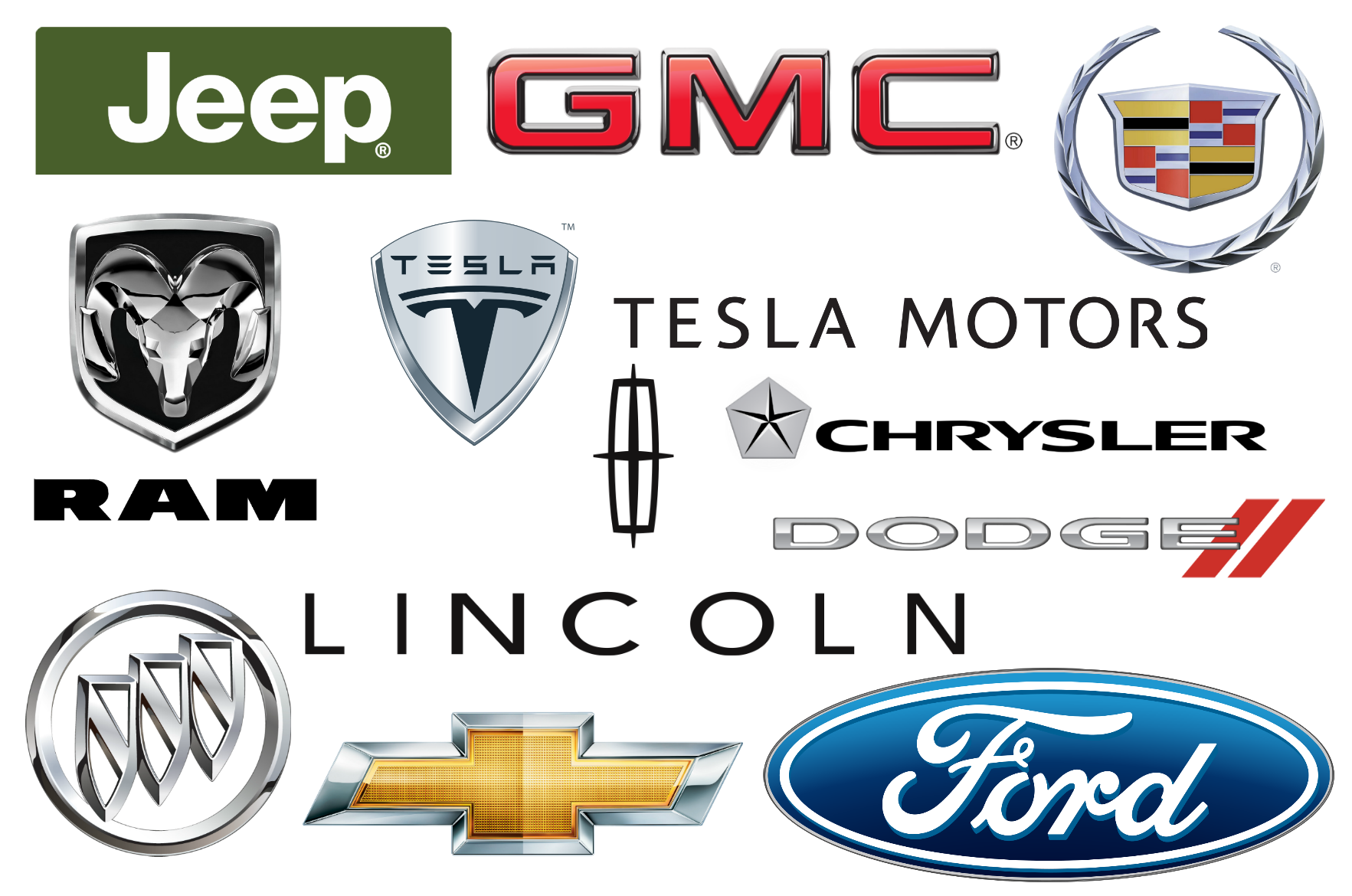
Innovations & Focus: GM has been a leader in powertrain technology, vehicle safety, and now, a massive push into electric vehicles and autonomous driving through its Cruise subsidiary.
2. Ford Motor Company
Overview: Established by Henry Ford in 1903, the Ford Motor Company revolutionized manufacturing with the introduction of the assembly line and the Model T. Ford remains a global powerhouse, known for its rugged trucks, popular SUVs, and performance vehicles. The company is investing heavily in electric vehicles and connected services.
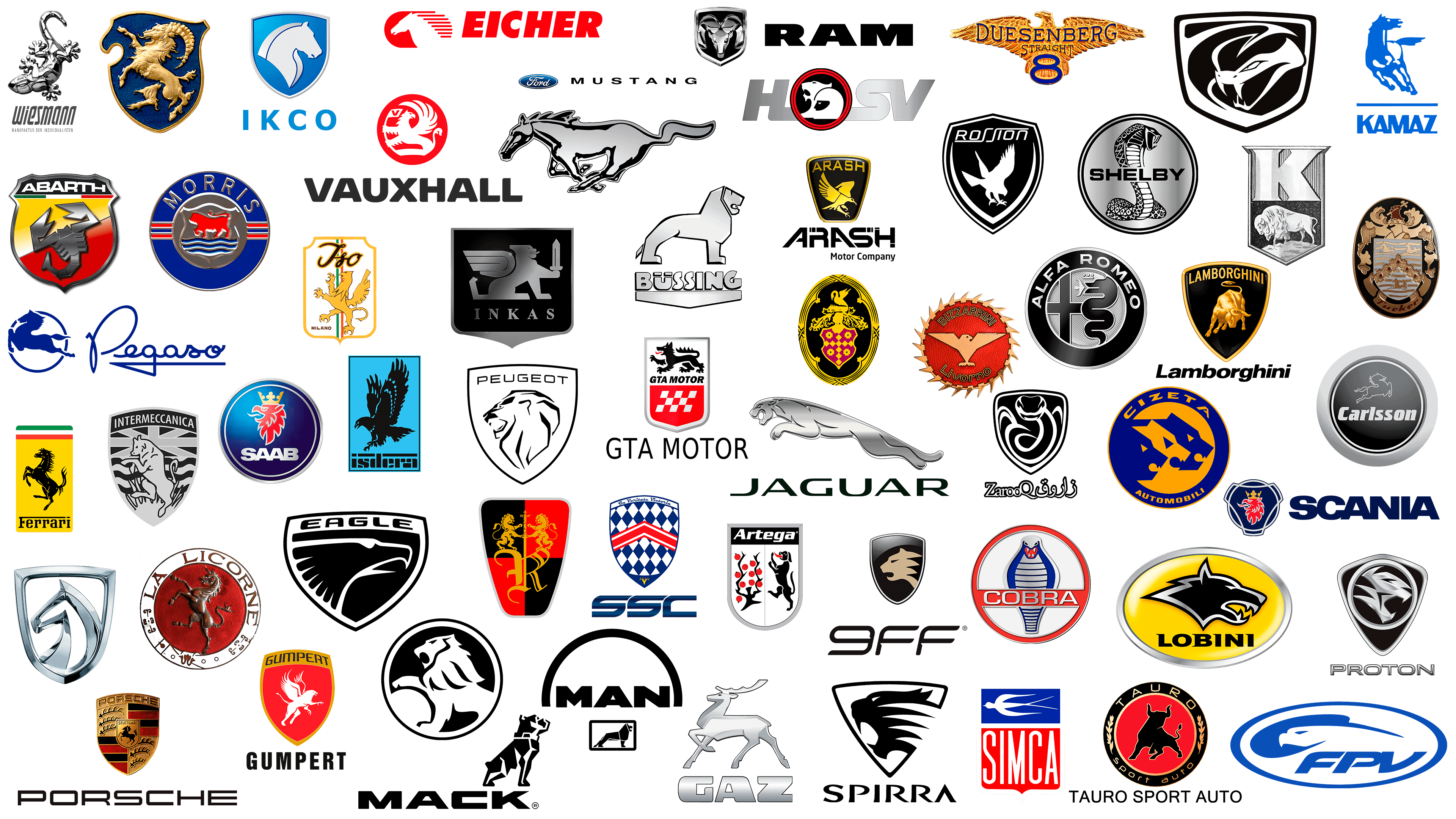
Key Brands Under Ford:
- Ford: The core brand, offering an extensive lineup including the best-selling F-Series pickup trucks (F-150, Super Duty), popular SUVs (Explorer, Escape, Bronco, Expedition), commercial vans (Transit), and performance cars (Mustang). Ford is aggressively expanding its EV offerings with models like the F-150 Lightning and Mustang Mach-E.
- Lincoln: Ford’s luxury division, Lincoln, emphasizes sophisticated design, quiet comfort, and advanced technology. Its current lineup consists primarily of elegant SUVs such as the Navigator, Aviator, Corsair, and Nautilus, offering a distinctly American luxury experience.

Innovations & Focus: Ford’s legacy is built on mass production and affordability. Today, it leads in truck innovation, commercial vehicle solutions, and is rapidly expanding its electric vehicle ecosystem, including charging networks and software services.
3. Stellantis (North America Operations)
Overview: Stellantis was formed in 2021 through the merger of Fiat Chrysler Automobiles (FCA) and PSA Group. Its North American operations comprise a strong portfolio of iconic American brands, known for their rugged utility, powerful performance, and distinctive styling.
Key American Brands Under Stellantis:
- Chrysler: The historic cornerstone of the former Chrysler Corporation, this brand now focuses on family-oriented vehicles, primarily the Pacifica minivan (including a hybrid version) and the upcoming Airflow EV concept. It aims for a premium, innovative, and family-friendly image.
- Dodge: Synonymous with American muscle and performance, Dodge offers powerful cars and SUVs. Key models include the Charger and Challenger, known for their high-horsepower V8 engines, and the Durango SUV. Dodge is embracing an electrified future with "eMuscle" concepts.
- Jeep: Perhaps the most globally recognized American brand for off-road capability, Jeep builds a range of SUVs and trucks designed for adventure. Models like the Wrangler, Grand Cherokee, Cherokee, Compass, Renegade, and Gladiator pickup define the SUV segment with their distinctive styling and legendary 4×4 systems. Jeep is also expanding with plug-in hybrid (4xe) models.
- Ram: Spun off from Dodge, Ram is a dedicated truck brand that has become a formidable competitor in the full-size pickup market. Ram trucks (1500, 2500, 3500) are celebrated for their powerful engines, luxurious interiors, and strong towing capabilities, alongside their ProMaster commercial vans.
Innovations & Focus: Stellantis’s American brands leverage their strengths in performance, off-road capability, and utility. They are actively pursuing electrification while maintaining their core identity, particularly in the SUV and truck segments.
Emerging Players and Niche Brands: The Future and the Past
Beyond the Big Three, a new wave of American automotive companies is making significant inroads, particularly in the electric vehicle space, alongside established niche manufacturers.
1. Tesla
Overview: Founded in 2003, Tesla has revolutionized the automotive industry by pioneering mass-produced electric vehicles and establishing a vertically integrated ecosystem of charging infrastructure (Supercharger network) and energy solutions. Tesla’s focus on software, autonomy, and direct-to-consumer sales has challenged traditional automotive models.
Key Models: Model S (luxury sedan), Model 3 (mass-market sedan), Model X (luxury SUV), Model Y (compact SUV), Cybertruck (electric pickup), and the upcoming Roadster and Semi.
Impact: Tesla’s success has pushed the entire industry towards electrification and demonstrated the viability and desirability of EVs.
2. Lucid Motors
Overview: Based in California, Lucid Motors is an American luxury electric vehicle manufacturer that aims to redefine premium electric mobility. Lucid focuses on groundbreaking range, exceptional performance, and sophisticated design.
Key Model: Lucid Air (luxury electric sedan), known for its impressive range (over 500 miles for some trims) and powerful performance.
3. Rivian
Overview: An American electric vehicle automaker and automotive technology company, Rivian specializes in electric trucks and SUVs designed for adventure and utility.
Key Models: R1T (electric pickup truck) and R1S (electric SUV), both praised for their off-road capabilities, innovative storage solutions, and strong performance. Rivian also produces electric delivery vans for Amazon.
4. Specialty and Niche Manufacturers
While not volume players, these brands represent the pinnacle of American engineering and craftsmanship, often producing ultra-exclusive vehicles:
- SSC North America (Shelby SuperCars): A boutique manufacturer known for producing hypercars like the Tuatara, which has pursued top speed records.
- Karma Automotive: A luxury electric vehicle manufacturer that emerged from the remnants of Fisker Automotive, producing the Revero, a luxury plug-in hybrid.
Key Characteristics and Innovations of American Cars
American car brands have left an indelible mark on automotive design and engineering. Their characteristics often include:
- Performance and Power: Historically known for large-displacement V8 engines, American cars, particularly muscle cars, have emphasized raw power and acceleration. This legacy continues in modern performance vehicles and powerful trucks.
- Truck and SUV Dominance: American brands lead the world in the production and sales of full-size pickup trucks and large SUVs, catering to a cultural preference for utility, space, and capability.
- Innovation in Manufacturing: From Henry Ford’s assembly line to modern robotics and advanced material sciences, American car companies have consistently pushed manufacturing boundaries.
- Emphasis on Comfort and Space: American vehicles, especially sedans and SUVs, often prioritize spacious interiors, comfortable seating, and smooth rides tailored for long-distance cruising.
- Technological Integration: Early adopters of safety features, infotainment systems, and now leading the charge in electric powertrains and autonomous driving technologies.
- Bold Design Language: American cars often feature distinctive, confident, and sometimes flamboyant designs that reflect a unique national aesthetic.
Choosing an American Car: Important Considerations
When considering an American car brand, several factors should guide your decision:
- Purpose and Lifestyle: Are you looking for a family hauler (SUV/minivan), a powerful work truck, an eco-friendly commuter (EV), or a thrilling performance car? American brands offer robust options across all these categories.
- Budget: American cars span a wide price range, from affordable compacts and mid-range sedans/SUVs to high-end luxury vehicles and cutting-edge EVs.
- Fuel Type and Efficiency: While traditional gasoline engines (especially V8s) are common, the push towards electrification means many American brands now offer hybrids, plug-in hybrids, and full battery electric vehicles (BEVs) with varying ranges and charging times.
- Features and Technology: Modern American cars come equipped with advanced infotainment systems, comprehensive safety suites (e.g., GM’s Super Cruise, Ford’s BlueCruise for hands-free driving), and connectivity options.
- Resale Value and Maintenance: Research specific models for their long-term reliability, typical maintenance costs, and how well they retain their value. Trucks and popular SUVs often have strong resale values.
- American-Made Content: If supporting domestic manufacturing is important, research the percentage of parts and assembly that occur in the USA for specific models. Many "American" brands have global manufacturing footprints.
Challenges and Solutions for American Car Brands
The American automotive industry faces ongoing challenges in a rapidly evolving global market:
- Intense Global Competition: Fierce competition from Asian (Toyota, Honda, Hyundai/Kia) and European (Volkswagen, BMW, Mercedes-Benz) manufacturers across all segments.
- Regulatory Pressures and Emissions Standards: Increasing pressure to reduce emissions and meet stringent fuel economy standards, accelerating the transition to EVs.
- Supply Chain Disruptions: Global events like semiconductor shortages and raw material price volatility continue to impact production.
- Shifting Consumer Preferences: A move away from sedans towards SUVs and trucks, and a growing demand for electric vehicles and autonomous driving features.
Solutions: American brands are responding by:
- Aggressive EV Transition: Investing billions in new EV platforms, battery technology, and charging infrastructure.
- Focus on Core Strengths: Doubling down on their dominant truck and SUV segments, where they have a competitive edge.
- Software and Services: Developing new revenue streams through connected services, over-the-air updates, and subscription models.
- Strategic Partnerships: Collaborating with tech companies and other automakers to accelerate development and share costs.
Practical Advice and Actionable Insights
- Define Your Needs: Before looking at brands, clearly outline what you need from a vehicle (e.g., towing capacity, passenger space, fuel efficiency, budget).
- Research Specific Models: Don’t just look at brands; dive into specific models that fit your criteria. Read reviews, compare specifications, and watch video tests.
- Test Drive Thoroughly: Always test drive multiple vehicles, including those from competing brands, to get a feel for performance, comfort, and features.
- Consider Total Cost of Ownership: Factor in insurance, maintenance, fuel/charging costs, and potential depreciation, not just the purchase price.
- Explore Incentives: For electric vehicles, research federal tax credits and state/local incentives that can significantly reduce the effective purchase price.
American Car Brands List: Price and Information Table (Approximate)
Please note that "Typical Starting MSRP Range" is highly approximate and can vary significantly based on trim level, options, market conditions, and model year. This table is for general guidance only.
| Brand | Parent Company | Key Focus / Notable Models | Typical Starting MSRP Range (Approx.) |
|---|---|---|---|
| Chevrolet | General Motors | Trucks (Silverado), SUVs (Tahoe, Equinox), EVs (Bolt, Blazer EV), Performance (Corvette) | $25,000 – $80,000+ |
| Cadillac | General Motors | Luxury SUVs (Escalade, XT5), Luxury EVs (Lyriq) | $45,000 – $110,000+ |
| GMC | General Motors | Premium Trucks (Sierra), Premium SUVs (Yukon), Electric (Hummer EV) | $35,000 – $110,000+ |
| Buick | General Motors | Refined SUVs / Crossovers (Encore GX, Envision, Enclave) | $27,000 – $55,000+ |
| Ford | Ford Motor Company | Trucks (F-150, Super Duty), SUVs (Explorer, Bronco), EVs (F-150 Lightning, Mustang Mach-E) | $25,000 – $90,000+ |
| Lincoln | Ford Motor Company | Luxury SUVs (Navigator, Aviator, Corsair) | $40,000 – $110,000+ |
| Chrysler | Stellantis | Minivans (Pacifica) | $35,000 – $60,000+ |
| Dodge | Stellantis | Muscle Cars (Charger, Challenger), Performance SUVs (Durango) | $30,000 – $90,000+ |
| Jeep | Stellantis | Off-road SUVs (Wrangler, Grand Cherokee), Pickup (Gladiator) | $30,000 – $85,000+ |
| Ram | Stellantis | Pickup Trucks (Ram 1500, 2500, 3500) | $35,000 – $90,000+ |
| Tesla | Tesla, Inc. | Electric Sedans (Model 3, S), Electric SUVs (Model Y, X), Electric Truck (Cybertruck) | $40,000 – $130,000+ |
| Lucid | Lucid Group, Inc. | Luxury Electric Sedans (Lucid Air) | $70,000 – $180,000+ |
| Rivian | Rivian Automotive, Inc. | Electric Trucks (R1T), Electric SUVs (R1S) | $75,000 – $95,000+ |
Frequently Asked Questions (FAQ)
Q1: Are American cars reliable?
A1: Modern American cars have significantly improved in reliability over the years, often ranking competitively with foreign brands. Brands like Chevrolet, Ford, and Ram frequently score well in consumer reliability surveys for many of their models, especially trucks and SUVs. Tesla’s reliability can be more variable, often due to software or build quality issues, though it’s improving.
Q2: Which American brand is best for trucks?
A2: Ford (F-Series) and Ram (Ram 1500/2500/3500) are typically considered the top contenders for full-size pickup trucks, both offering immense capability, variety, and strong sales. Chevrolet (Silverado) and GMC (Sierra) are also very strong players in this segment. The "best" often comes down to personal preference for features, styling, and specific towing/hauling needs.
Q3: Are American cars good for luxury?
A3: Absolutely. Cadillac and Lincoln are dedicated luxury divisions, offering sophisticated designs, premium materials, and advanced technology. Beyond these, higher trims of vehicles from brands like Chevrolet (e.g., Tahoe High Country), GMC (Denali models), and Ram (Limited trims) offer luxury experiences that rival dedicated premium brands. Tesla and Lucid also offer high-end luxury electric vehicles.
Q4: What is the future of American car brands?
A4: The future is overwhelmingly electric and digitally integrated. American car brands are investing billions in developing new EV platforms, battery technology, and autonomous driving systems. Expect to see a continued focus on trucks and SUVs, but with electric powertrains, and a greater emphasis on connected services, over-the-air updates, and subscription features.
Q5: Are all "American" cars made in the USA?
A5: Not necessarily. While American brands design and engineer many of their vehicles in the USA, their manufacturing operations are global. Many models from Ford, GM, and Stellantis brands are assembled in plants across North America (Canada, Mexico) and other continents. Conversely, some foreign brands (e.g., Honda, Toyota, BMW, Mercedes-Benz) have significant manufacturing facilities in the USA. If "made in USA" is important, it’s best to check the specific vehicle’s VIN or manufacturer’s information.
Conclusion
The American car brands list represents a dynamic and evolving landscape, steeped in a rich history of innovation and cultural significance. From the enduring legacy of the Big Three with their powerful trucks, versatile SUVs, and luxury offerings, to the revolutionary electric vehicles from Tesla, Lucid, and Rivian, American automakers continue to push boundaries. While facing global competition and the challenges of a transition to electrification, these brands are adapting, innovating, and reaffirming their commitment to shaping the future of mobility. For consumers, this translates into a diverse and exciting range of choices, ensuring that American ingenuity remains a driving force on roads worldwide.
